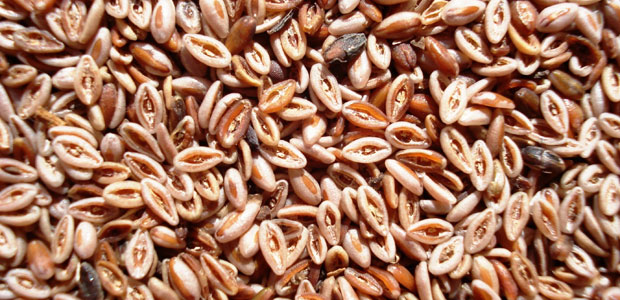Advertisement
Fibre: A Multi-Purpose Friend
With disease-fighting prowess

Do you have constipation? High cholesterol? Hypertension? Hardening of the arteries? Blood sugar issues? Unbelievably, by simply adding fibre to your diet, you can impact all these health issues and more.
Fibre is found in all plant foods. There are two kinds of fibre—soluble and insoluble. Most whole foods contain a combination of both.
Soluble versus insoluble
Soluble fibre is a sponge in the digestive tract, absorbing water to form a gel and cleansing as it passes through. Soluble fibre includes psyllium husk and pectin.
Insoluble fibre, by contrast, acts like a scrub brush sweeping food and waste through the system. It gives stool bulk and speeds its excretion. Insoluble fibre is found in the peels of fruits such as apples, blueberries, and grapes.
Blood sugar balance
Soluble and insoluble fibres work to keep your digestion healthy. Their modulating actions also influence blood sugar levels.
Fibre slows the digestion of carbohydrates, which reduces blood sugar (glucose) spikes after eating. Fibre also improves insulin sensitivity—both important considerations to the 10 million plus Canadians who have diabetes or pre-diabetes.
With diabetes, the body either doesn’t produce enough insulin, which shuttles sugar into cells, or the body doesn’t use insulin properly. Sugar builds up in the blood and, if left unchecked, can lead to complications including heart, kidney, and eye disease.
Diabetes is a contributing factor to about 41,500 Canadian deaths each year.
Watch your weight
There is an association between diabetes and obesity. Increasing your fibre intake can aid weight loss. Studies note that eating a high-fibre breakfast results in reduced food intake and increased feelings of satiety.
Other research has found a relationship between low fibre intake and higher body fat stores.
How much do you need?
According to the Heart and Stroke Foundation, a healthy adult needs 21 to 38 grams of fibre a day. Unfortunately, the average person gets only about 14 grams.
Fortunately, fibre supplements are available in a variety of forms: powders, tablets, and capsules. Look for one that contains both soluble and insoluble varieties from sources such as organic flax seed, rice bran, psyllium husks, high pectin apple fibre, acacia gum, organic guar gum, chia seed, and glucomannan.
Add more fibre to your life and watch your scale count down, your blood sugars improve, and your risk of disease drop.





